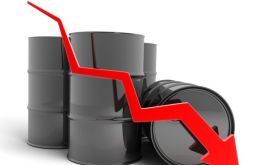MercoPress. South Atlantic News Agency
Tag: Organization of the Petroleum Exporting Countries OPEC
-
Thursday, July 20th 2017 - 21:19 UTC
Ecuador steps down from OPEC's agreement to cut output: need of fiscal funds

Ecuador will not honor the Organization of Petroleum Exporting Countries’ (OPEC) agreement to cut oil output, Ecuador’s Oil Minister Carlos Perez said this week. The country, one of OPEC’s 14 member countries, is rethinking its commitment to drop oil production to 522,000 barrels a day.
-
Monday, July 10th 2017 - 17:45 UTC
Don't hold your breath for deeper OPEC cuts

The rally in oil prices over the past two weeks came to a halt on news that OPEC is actually exporting more oil than previously thought. A month ago, oil prices appeared to be higher than they should have been, with weak demand, elevated inventories, and a recognition that the nine-month OPEC extension would be inadequate to balance the market.
-
Thursday, May 25th 2017 - 19:07 UTC
Today's stunted oil prices could cause oil price shock in 2020

As oil prices remain unsteady and OPEC continues to make headlines every hour, the world is focused on oil's immediate future. As Saudi Arabia announces plans to slash production and move their economy away from oil dependency, many industry insiders are predicting that the now over-saturated market will reach an equilibrium with higher commodity prices by 2018 and U.S. shale production will continue to grow along with global demand.
-
Tuesday, March 14th 2017 - 21:28 UTC
Is a second OPEC cut on the Cards?

OPEC's coordinated effort to curtail global supply has so far managed to put a floor under oil prices, which have been sitting modestly above US$50 since the deal was announced at the end of November last year. But resurging U.S. shale has been capping the upside, and Brent has not breached US$58 per barrel. Analysts and experts are now mostly predicting that oil prices will remain below US$60 this year.
-
Thursday, December 1st 2016 - 15:30 UTC
Russia ready to do its part as OPEC countries agree on oil output cut

As the Organization of Petroleum Exporting Countries (OPEC) has reached a deal among all 14 members to cut oil production for the first time since 2008, Russia's Energy Minister Alexander Novak said his country was ready to do its part by reducing 300,000 barrels per day in the first half of 2017, provided OPEC adheres to the level of 32.5 mln barrels daily adjusted for Indonesia and on condition of maximum reciprocity from other non-OPEC countries. Russia is not an OPEC member.
-
Monday, November 28th 2016 - 09:36 UTC
Doubts about OPEC's production cut agreement make crude oil prices dive

Oil prices fell over 1 percent Monday in Asia following a decline of more than 3 percent Friday over disagreement between members of the Organization of the Petroleum Exporting Countries (OPEC) and non-OPEC exporters like Russia. Brent crude futures LCOc1 were trading at $46.40 per barrel at 0035 GMT (7.35 a.m. ET), down 84 cents, or 1.8 percent, from their last close, while U.S. West Texas Intermediate (WTI) crude futures CLc1 were down 74 cents, or 1.6 percent, at $45.32 a barrel.
-
Thursday, November 3rd 2016 - 07:53 UTC
OPEC Crude Basket Drops to $44.53

The basket of crude oil used as a benchmark indicator by the Organization of Petroleum Exporting Countries dropped to $44.53, the OPEC Secretariat said on Wednesday in Vienna.
-
Friday, September 30th 2016 - 15:00 UTC
Where will oil prices go after Algiers?

Saudi Arabia and Iran may yet come to terms on some sort of production arrangement, but the outcome of the negotiations in Algeria this week may not do much to rescue oil prices. Following the media spectacle, the oil markets may have to shift their attention back to the supply and demand fundamentals, which are not reassuring
-
Tuesday, September 6th 2016 - 18:21 UTC
Russia and Saudis agree to “act together” to lift price of oil from its two-year slump

Energy ministers from the world's two largest oil producers, Russia and Saudi Arabia said on Monday that their countries had agreed to “act together” to lift the price of oil out of its two-year slump, though they provided few details as to how they planned to achieve that goal.
-
Monday, August 29th 2016 - 04:11 UTC
Venezuela and Iran announce new “dynamic bilateral relations”

Venezuelan President Nicolas Maduro named Chief General Jesus Gonzalez as the country's new ambassador to Iran on Saturday, while announcing the beginning of a new dynamic era in Caracas-Tehran bilateral relations.
